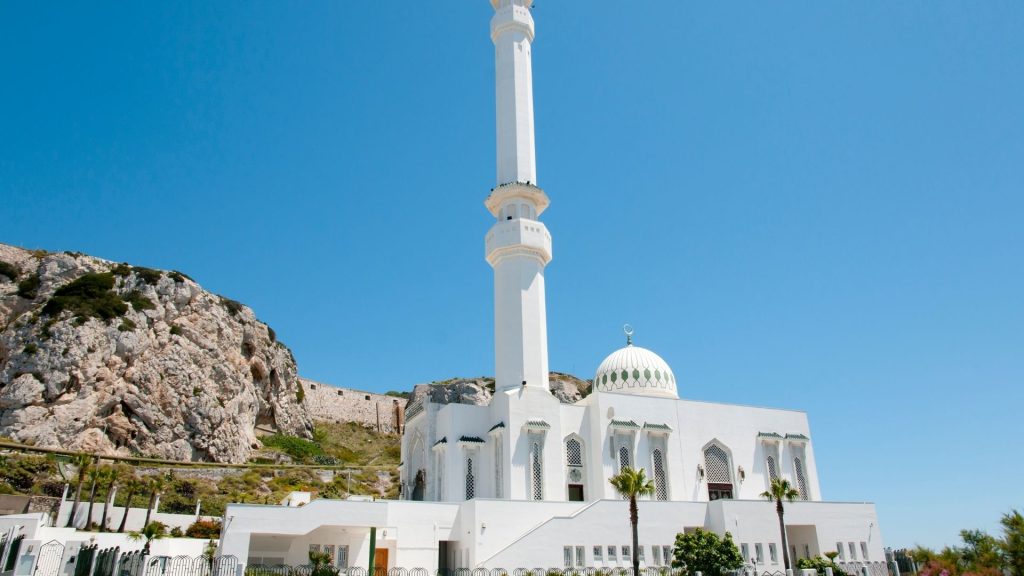Prophet Hazrat Ibrahim (A.S)
Prophet Hazrat Ibrahim (A.S), also known as Abraham in other faiths, holds a special place in Islam as a highly respected figure. His life story teaches important lessons about faith, sacrifice, and obeying God’s commands. From his early days questioning the beliefs of his community to the moment he was ready to sacrifice his son Ismail (AS), Ibrahim’s life is full of inspiring moments.
As Muslims celebrate Eid al-Adha, a festival that remembers Ibrahim’s obedience to God, his story inspires people to have strong faith and trust in God. In this article, we’ll learn why Prophet Ibrahim (A.S) is so important in Islam and what sacrificing during Eid al-Adha means for Muslims.
Who is Prophet Hazrat Ibrahim (A.S)?
In Islam, Prophet Ibrahim (A.S) is revered and regarded as one of the most esteemed figures in human history. He is known as Abraham in Christianity and Judaism. He is hailed as the patriarch of prophets, with a lineage that includes many significant figures mentioned in the Qur’an, Bible, and Torah. Among them is the Prophet Muhammad (peace be upon him), tracing his noble ancestry.

Early Life of Ibrahim (A.S)
Prophet Ibrahim (A.S) was born into the household of the idol sculptor Azar ibn Nahur and Maria in the ancient city of Ur, Chaldea (now Babylon, Iraq). Despite being surrounded by idolatry from a young age, Prophet Hazrat Ibrahim (A.S) was blessed with wisdom and spiritual understanding that led him to question the beliefs of his community.
The Birth of Monotheism
Ibrahim (AS) was the son of Azer, who made statues for people to worship. But Ibrahim (AS) didn’t understand why people prayed to these statues and asked his father about it. When God spoke to Ibrahim (A.S) for the first time and told him to worship only Him, Ibrahim (AS) started telling others to do the same. He began by questioning his father about the statues.
He asked his father,
“Why do you worship something that can’t hear, see, or help you?”
When his father didn’t listen, Ibrahim (AS) decided to take action. One night, he went to the temple where the statues were kept and broke all except one. The people were angry and threw him into a big fire. But God saved him, and Ibrahim (AS) fled the fire without getting hurt. He didn’t give up and kept spreading the message of believing in only one God.
The Great Sacrifice of Prophet Hazrat Ibrahim (A.S)
One of the pivotal moments in Prophet Ibrahim’s (AS) life was when he received a divine command to sacrifice his beloved son, Ismail (AS). Despite his deep love for his son, Ibrahim (AS) submitted to the will of Allah SWT and prepared to carry out the sacrifice.
However, Ismail (AS) was spared through divine intervention, and a ram was provided as a substitute, demonstrating Ibrahim’s unwavering faith and obedience.
Trials and Tribulations
Prophet Ibrahim (AS) encountered various challenges, such as being instructed to leave his homeland and relocate to a new land. Additionally, he faced the hardship of leaving his wife Hajar and son Ismail (AS) in the desolate valley of Mecca and enduring tests from the idol-worshipping society. Ibrahim (AS) remained steadfast in his faith and devotion to Allah SWT through each trial.
The Three Lies
Narrated Abu Hurayrah:
Abu Hurayrah told the story of Prophet Ibrahim, who only lied three times in his life.
Twice, he did it to protect himself for the sake of Allah, once claiming he was sick and another time saying a big idol was responsible for something he hadn’t done.
The third lie occurred when Ibrahim and his wife Sarah traveled and encountered a tyrant wanting Sarah. Fearing for their safety, Ibrahim said Sarah was his sister to protect her. When the tyrant tried to take Sarah, his hand stiffened, and he was confused.
After Sarah prayed to Allah, the tyrant was cured but tried again, only to face the same consequence. Eventually, he realized he was dealing with something beyond his power and gave Hajar, Sarah’s servant, to her. Ibrahim and Sarah then left Egypt with gifts, money, and Hajar, the Egyptian woman.

Legacy and Title
Due to his unwavering devotion and submission to the will of Allah SWT, Prophet Ibrahim (AS) is revered in Islam as “Khaleelullah” (Friend of Allah). His legacy extends to his sons, Ismail (AS) and Ishaaq (AS), who continued his spiritual lineage and played significant roles in spreading the message of monotheism.
Courage and Confrontation
Prophet Hazrat Ibrahim (A.S) demonstrated immense courage in challenging the idolatrous practices of his people, as seen in the incident of the great fire. Despite facing persecution and being thrown into a blazing fire, Ibrahim (AS) emerged unscathed through the divine intervention of Allah SWT, reaffirming his status as a chosen messenger of God.
Inspiration for Believers
The story of Prophet Ibrahim (AS) is a timeless example of the power of faith, resilience, and submission to the divine will. His unwavering commitment to monotheism and his willingness to sacrifice everything for the sake of Allah SWT continue to inspire and guide millions of people worldwide in their spiritual journeys.
FAQs
What is the significance of Prophet Ibrahim (AS) in Islam?
Prophet Ibrahim (AS) is revered in Islam as one of the greatest prophets. His unwavering faith, devotion, and submission to Allah (SWT) are exemplary traits for Muslims. His story, including the willingness to sacrifice his son for the sake of Allah, embodies profound lessons in faith and obedience.
Why is sacrifice a central theme during Eid al-Adha?
Sacrifice during Eid al-Adha symbolizes Prophet Ibrahim’s obedience to Allah’s command. Muslims offer sacrifices, typically animals like goats, sheep, cows, or camels, as a demonstration of their willingness to submit to Allah’s will and as a reminder of the importance of compassion and sharing with those in need.
What is the Qurbani (Sacrifice), and why is it performed?
Qurbani refers to the ritual sacrifice performed during Eid al-Adha. It is carried out to commemorate Prophet Ibrahim’s willingness to sacrifice his son and to express gratitude and obedience to Allah (SWT). The meat from the sacrificed animal is distributed among family, friends, and the less fortunate, promoting social cohesion and charity.
How do Muslims commemorate Eid al-Adha?
Eid al-Adha is marked by special prayers, known as Eid Salah, performed in congregation. Following prayers, Muslims engage in festive gatherings, feasting on traditional dishes and sweets. Additionally, they exchange greetings and gifts with family and friends and engage in acts of charity and community service.
Is there a specific time for performing the sacrifice during Eid al-Adha?
The sacrifice is typically performed after the Eid prayer and can be carried out during Eid al-Adha, which lasts three days. It is recommended to perform the sacrifice as soon as possible after the Eid prayer, but it can be done throughout the specified days of the festival.
Summary
The narrative of Prophet Hazrat Ibrahim (A.S) embodies the quintessence of faith, resilience, and devotion in the annals of Islamic history. His indomitable spirit and unwavering commitment to divine obedience are an eternal testament to the transformative power of faith.
Muslims worldwide honor Prophet Ibrahim’s legacy during Eid al-Adha. They seek inspiration from his life. They aim to imitate his unwavering submission, compassion, and selflessness. Believers reaffirm their covenant with Allah. They transcend ritualistic sacrifice. They embrace timeless ideals of faith and compassion.
